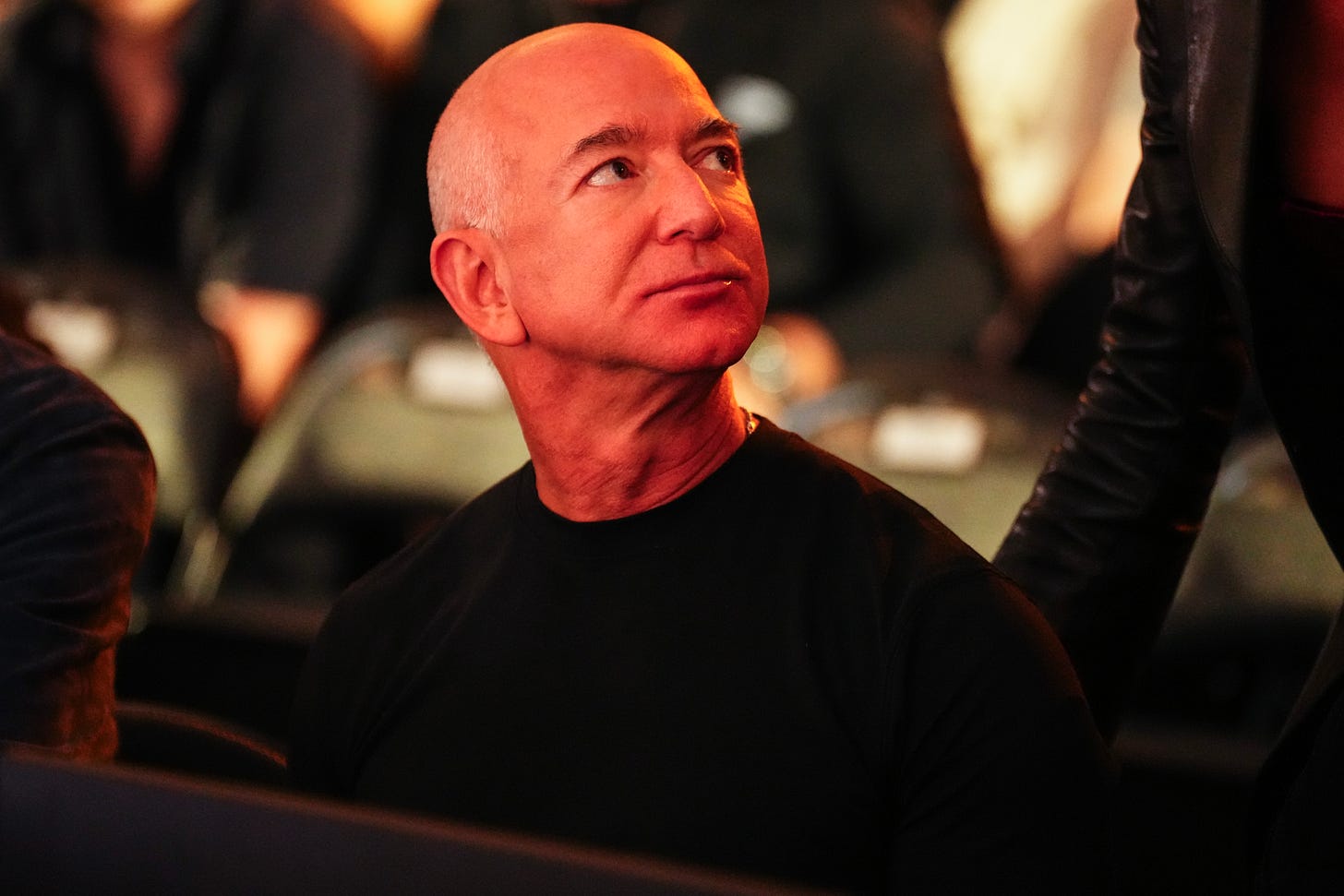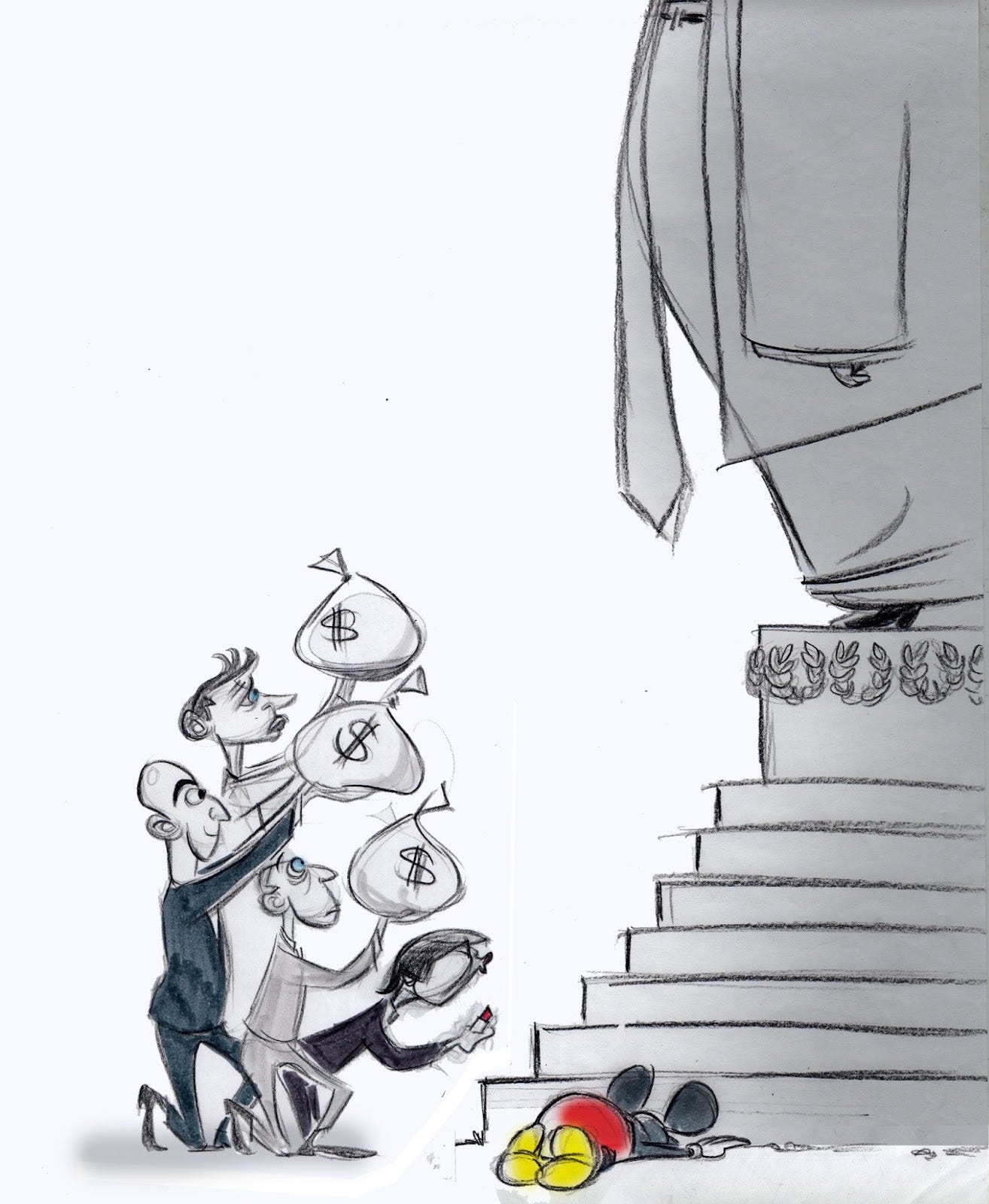Take This Billionaire, Please
Why is Jeff Bezos hurting, not helping, journalism?
When a journalistic institution is the one making headlines, it’s rarely good news. Such is the case for a revered American newspaper, The Washington Post. A mothership of American journalism, whose reporters helped topple an American president and inspired generations of young reporters, is listing and taking on water.
As Donald Trump and his army of “alternate” truth-tellers get ready to take the reins of government again, the country desperately needs the best and brightest journalists watching and reporting on their every move. And yet we wake to news that the Post is expected to lay off dozens more staffers the very month Trump returns to power.
The 147-year-old newspaper is apparently bleeding money, a problem of its own making. When billionaire Post owner Jeff Bezos pulled the newspaper’s endorsement of Kamala Harris just days before the election, a reported 250,000 readers cancelled their subscriptions in protest. That accounts for 10% of the paper’s online audience.
“I just cancelled my Washington Post subscription. The web site asked why, and the closest option was ‘concern with the content.’ There was no option about surrendering to fascism, but that’s the real reason,” a former subscriber posted on X.
For Bezos, founder of Amazon, the Post’s financial losses are peanuts considering his $200 billion plus net worth. But his love of the paper and his passion for quality journalism seem to be shrinking.
Back in 2013, when Bezos bought the Post from the family of venerated publisher Katharine Graham, he said he wanted to transform it from a regional newspaper to a global one. He provided money — big money — to expand the newsroom and encouraged reporters to extend their reach by embracing the “gifts of the internet.”
Over the ensuing decade, his interest in the paper ebbed and flowed, but he mostly stayed out of the editorial decision-making. Then he pulled the Harris endorsement causing an exodus of top editors, opinion writers, and reporters.
But Bezos wasn’t done burnishing his rep with the former president. After the election, he pledged $1 million to help pay for Trump’s inauguration and agreed to stream it live on Amazon Prime (an additional $1 million in-kind contribution). Just before Christmas, he was seen at Mar-a-Lago, kissing the ring with fellow super-rich guy Elon Musk. And he has green-lit a documentary about Melania Trump to air on Prime. I’m guessing it will be what’s known in the trade as a “sweetheart profile.”
While it isn’t great that the owner of one of the most important papers in the country is cozying up to an incoming president who says he will be a dictator on “day one,” Bezos’s actions aren’t surprising. He didn’t become a billionaire by being selfless.
But on Friday, things took another turn at the Post. Pulitzer Prize-winning editorial cartoonist Ann Telnaes quit in protest after a cartoon of hers was killed.
In a piece she published on Substack, Telnaes explained that “there have been instances where sketches have been rejected or revisions requested, but never because of the point of view inherent in the cartoon’s commentary. That’s a game changer…and dangerous for a free press.”
The focus of the cartoon, as you can see in the rough draft above, was Bezos and other billionaire media moguls — Facebook’s Mark Zuckerberg, Sam Altman of OpenAI, Patrick Soon-Shiong of the Los Angeles Times, and Mickey Mouse, representing The Walt Disney Company — paying tribute and genuflecting at the feet of a statue of Donald Trump.
It appears the boss didn’t like it, though David Shipley, the Post’s opinions editor, claims the cartoon was axed because several other columns on a similar topic had been scheduled. “The only bias was against repetition,” Shipley said in a statement.
Please do not discount Telnaes or her medium. Her job is the same as any journalist: to hold powerful people accountable. Political cartoons have long played a valuable role in political discourse. Right now we can’t afford to lose any more good journalists or media outlets, but that is exactly what’s happening.
Since 2005, a third of newspapers in the United States have folded, and two-thirds of newspaper reporters are gone. On an Axios podcast, Victor Pickard, a professor of media policy and political economy at the University of Pennsylvania, explained that “We no longer have a commercial market that can support the levels of journalism that democracy requires.”
Another model needs to be found, and fast. We’ve learned the hard way that benevolent billionaires aren’t going to rescue American journalism. Smarter people than I are working on ways to do just that … an important topic for another Steady down the road.
In the meantime, fingers crossed. As I have said over the years and repeat now for emphasis: A free and independent — fiercely independent when necessary — press is the red beating heart of democracy.
To support my team’s efforts to protect our democracy through the power of independent journalism, please consider joining as a paid subscriber. It keeps Steady sustainable and accessible for all. Thank you.
No matter how you subscribe, I thank you for reading.
Stay Steady,
Dan



I'm guessing her cartoon has been viewed more now, than had it run.
This is the reason why I subscribe to a select few people like Dan Rather who are supplying facts in their daily posts. People like Jay Kuo, Heather Cox Richardson, and Robert Reich to name a few.